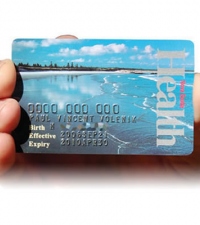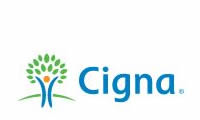Seeing a Doctor in Canada

In Canada the individual chooses a family physician, also known as a general practitioner or GP. The GP is your main point of contact with Canada’s healthcare system.
Patients should see a GP for general medical concerns, routine checkups, Pap smears, vaccinations, and to get prescriptions written or refilled, including birth control. Preventative and early detection are considered important in Canada and yearly checkups with your GP are encouraged.
To see a GP, contact an office or clinic for an appointment. Not all clinics or offices accept new patients, therefore it is best to ask friends or co-workers for recommendations, or contact an immigrant-serving organization for assistance.
You are under no obligation to commit to the first doctor you visit. You can change GPs whenever you want to.
When booking a GP appointment, you may be asked to provide your name, phone number, address, and the purpose of your visit.
When you arrive at the clinic or office you must register with a receptionist. During your first visit, you will be asked to present your health card. You may also be asked to provide a medical history, including drug allergies, current or past medical conditions, past surgeries, and other medical concerns. You may also be asked for insurance information.
At some GP offices, nurses, nurse practitioners, or medical students may assist your physician in their tasks, such as routine physical checkups, questionnaires, blood pressure testing, etc.
If a patient wishes to see a specialist or is counseled to see a specialist, a referral is made by a GP.
You are entitled to ask questions when visiting a GP or specialist. It is also acceptable to seek a second opinion if you wish.
Fees are generally charged for missed or late appointments for GPs and specialists.
Health records
Most GP’s in Canada are moving towards an electronic record keeping system, where your personal information, health records, test results, etc. are inputted and stored, and can be shared between physicians, specialists, pharmacies, and hospitals.
You health records are private and confidential. No one can see your medical records without your permission. This includes your family, employer, etc.
Patients may have access to their health records upon request, however, patients must pay for a hard copy of their medical records.
Medical Emergencies
In a medical emergency, call 911 or visit your local Emergency Department.
At an Emergency Department you will be required to check in with a nurse at a reception desk. They will ask you for your health card, and inquire as to the reason for your visit. You will then be triaged and seen based on the severity of yours and other patient’s complaints.
If your symptoms worsen while you are waiting in the Emergency Department you must bring this to the attention of a nurse or physician.
Walk in Clinics
For after-hours care or minor emergencies you can visit a walk in clinic. Walk in clinics are generally open evenings and weekends when physician’s offices are closed.
When visiting a walk in clinic you must register with a receptionist. He/she will ask for your health card, your name, telephone number, the name of your GP, and your address. In most cases you will be issued a numbered place in a queue, where physicians are seen on a first come first serve basis.
Wait Times
Life-threatening and very serious cases are dealt with in Emergency Departments and hospitals immediately.
For non-urgent services, patients are seen at the next available appointment. For GP’s this is generally within a few days or weeks. For specialists this wait can be several weeks, up to a year.
Emergency room wait times vary, depending on province and city, from 2 to 12 hours for non-life-threatening conditions.
Prescriptions
Once your doctor issues you a prescription, you must bring the hard copy of your prescription to a pharmacy to have it filled. This can generally be done within a few minutes or hours.
Prescription refills may be conducted over the phone. In the event that your prescription expires or runs out, a physician may telephone your pharmacy to refill the prescription, or you may be required to visit your physician to receive a new prescription.
Some physicians and pharmacies now use electronic prescriptions, in which case you need only visit the pharmacy to collect your medication.
Immunizations
In Canada, most people get immunizations or vaccinations to prevent serious diseases. Most immunizations are free of charge for children in all provinces and territories. Immunizations are provided at GP offices, clinics, and some schools and workplaces.
Immunizations are routinely provided in Canada for diphtheria, tetanus, whooping cough, polio, Rubella, measles, mumps, and Hepatitis B. Non-routine vaccinations against the chickenpox, Hepatitis A, meningitis, HPV, and influenza are also available.
Some provinces require certain immunizations before children may attend public school.
Some provinces provide immunization programs at school, where a child may be immunized against hepatitis, HPV, etc. with their parent’s consent.
By Jess Gerrow, who traded city life in Canada for island life in the Mediterranean two years ago. She is a postgraduate marketing student, blogger, and freelance writer.
- My Life Abroad -
A selection of expat stories

"A fun compulsive read!"
J. Matcham, Amazon
"I strongly advise people ready to live abroad to read this book!"
Patrice, Amazon

 Healthcare in Canada
Healthcare in Canada APRIL Travel Insurance
APRIL Travel Insurance Cigna Global
Cigna Global William Russell
William Russell